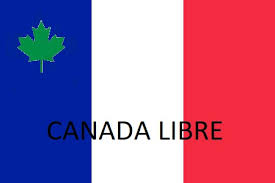IS NATO REALLY NECESSARY?
Since
its founding after World War II, the North Atlantic Treaty Organization (NATO)
has known many expansion phases, from 1952 to 2020, but its usefulness may be
seen as less than before, since the countries that form the European Union (EU)
are collectively more populous, more developed economically and more powerful
military than NATO's apparent adversary, which is to say the Russian
Federation, the main fragment of the old Union of Soviets Socialists Republics
(USSR).
The
expansion phases has occurred before the fall and dissolution of the USSR (at
the juncture of the 80' and the 90') and after. For most of its history, its
main defensive axis was along the line Germany/Alps/Italy, with a
northern wing (through Denmark and Norway), and a southern one (through Greece
and Turkey), both wings actually bordering parts of the territory of the Soviet
Union at their respective extremity.
Since
the collapse of the USSR and as the result of the subsequent expansions of NATO
toward the East (contrary to verbal engagements made by American
representatives on that subject), that main north-south line of defence has
shifted many hundreds of kilometers eastward, till it reached the following
axis: Poland/Carparthians/Romania, again with (slightly different)
northern and southern wings.
It must
be said that, through all that expansion process, many inside the Russian
Federation have seen it as a provocation and a possible threat, coming nearer
and nearer as time went by. Last year, the Russian invasion of Ukraine, caused
in a large part by that series of enlargements, had the effect of hardening the
new defensive axis and fixing it in place, at least for the moment.
It is
possible that the northern wing of NATO got beefed up with the addition of two
new members, Sweden and Finland, because of the war. But then, two NATO's
members, Hungary and Turkey, seems to relay one another to delay the addition
of those two Scandinavian countries to NATO for as long as possible, in a way
that may possibly have been planned beforehand in the case of Turkey and that
may simply be opportunistic in the case of Hungary.
at this
point, the countries that are part of NATO can be divided in three large
categories:
1) the
countries that are part of the Anglosphere (United States, Canada, United
Kingdom);
2) the
countries that have long been members of NATO on the European continent, more
precisely in Western Europe (France, Italy, Germany, Belgium, The Netherlands,
etc.); and
3) the
countries added since the break-up of the USSR, in Central and Eastern Europe,
whether they are ex-Soviet republics or ex-independent republics that used to
be involuntary members of the Warsaw Pact.
The
respective attitudes of the three groups, regarding Russia and the current
geopolitical situation, are quite different. The members located in Central and
Eastern Europe have mostly bad memories of the old Soviet domination and are
often quite anti-Russian. The members who are Anglo-Saxons countries, on the
other hand, tend to perceive China as a growing threat and to see NATO to
contain Russia while America reorganize itself in order to concentrate its
efforts on the Far East. Lastly, the members located in Western Europe tend to
be less anti-Russian than their Central and Eastern European neighbors.
The
giant manifestation that happened on the 25th of February, in Berlin (Germany),
with thousands of participants, is one of many signs that a large part of the
population of that part of the continent see things differently and is at odd
with the public position of their governments.
The
shape of NATO, and possibly its very fate and existence, is likely to be
impacted by the issue of the invasion, and the realignments that it may occasion,
one way or the other, with all the consequences that would ensue in the
relations between the US, the European countries, Russia and China, among
others. It may be the start of a popular opposition to the way things have been
run up to now, by those governments.
For
many, what the European continent really need is to learn to defend itself,
and, at the same time, cease to do the bidding of Anglo-Saxon countries,
through NATO and other institutions of the sort. They feel that continental
Europe doesn’t need NATO to deter a Russia that, in truth, is puny relative to
it, both economically and militarily.
It is undeniable
that the USA needs NATO to protect its eastern flank, while it tries to contain
China on its western flank. At the same time, it is less evident that the
European Community needs NATO the same way. The whole situation begs the
question: Will the Europeans start to think by themselves and for themselves
and stop being pawns in the hands of the anglophone countries?
* * *
https://www.politico.eu/article/nato-change-war-ukraine-russia-defense/
https://www.economist.com/leaders/2023/02/23/a-year-after-he-promised-a-transformation-olaf-scholz-has-done-too-little




Commentaires
Enregistrer un commentaire
Bonjour, tous les commentaires sont acceptés, dans la mesure où ils sont d'ordre professionnel. Insulteurs s'abstenir...